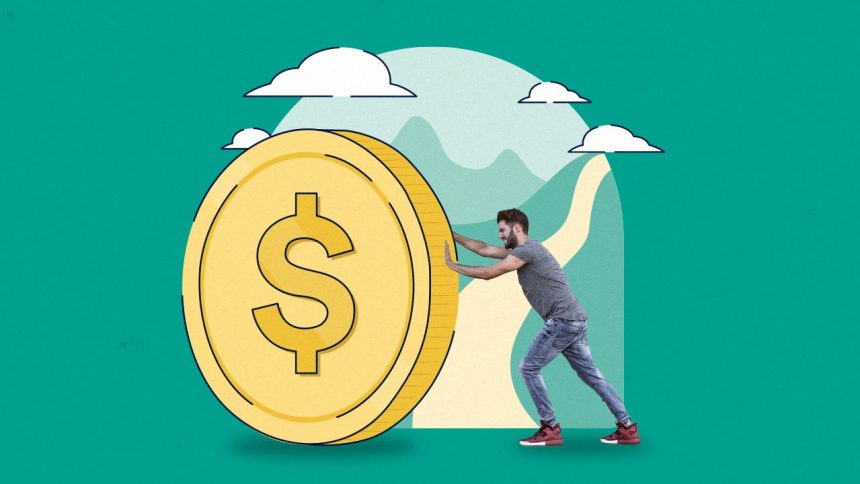If you’ve just paid off a debt, congratulations!
Paying down debt requires focus and discipline, both of which will help you achieve your financial goals.
While paying off debt can offer you saved interest and the financial freedom of not having to make monthly payments, the work doesn’t stop there. With some planning and sustainable goal-setting, you can use your former debt payment to further your financial goals, secure your finances and build your wealth for the future.
Pay off other debt
If you have other debts and loans remaining, one of your next goals should be paying down your other balances.
Even if you’re not struggling to pay other debts, becoming debt-free as soon as possible will save you on interest and free up your finances for other endeavors. The monthly payment for your paid-off debt can serve as a springboard for paying off other loans more quickly.
This is the key concept for both the debt snowball and debt avalanche repayment strategies. With each method, borrowers with multiple debts contribute as much money as they can to one debt at a time to pay it off quickly before moving on to the next debt and rolling the previous payment into the next debt.
Paying off debt quickly can come with several benefits. Even if becoming debt-free is still years down the line, you’ll save on interest as your principal is paid off, improve your debt-to-income ratio and build up a positive history on your credit report as your on-time payments are recorded.
Evaluate your budget
You shouldn’t stop budgeting and tracking your expenses even after your debt is paid off. Knowing where your money goes each month will help you stay on top of your bills and balances. Doing so can also prevent you from going into debt again.
There are a few options for handling your former debt repayment, assuming you have no other balances to pay off. If you have a specific savings goal, you can dedicate your payment to that.
You can also direct your payment to another part of your budget, like giving yourself more wiggle room for groceries or increasing your limit on restaurant expenses.
The key thing is to make sure you know where every dollar is going and that your budget doesn’t spiral out of control. Sticking to the 50-30-20 rule or building a zero-based budget can help you enjoy your additional funds without letting your expenses get out of control.
Bulk up your emergency fund
Your top savings priority when you’ve finished paying off your debt should be your emergency fund.
Whether you have a sudden medical bill, lose a job or have to pay for a car repair, having a sufficient emergency fund can help you with expenses in a pinch.
Cash on hand can prevent you from going into debt again, saving you money on interest and fees. It can also offer peace of mind that you can cover an unexpected bill or support your family during a difficult time.
As a best practice, your emergency fund should contain about three to six months of living expenses. It should be enough to help cover essentials like housing, car, utility, grocery costs, and any other debts you’re paying for. It’s a good idea to evaluate your fund every few months to make sure it’s keeping up with your expenses and that you have enough on hand.
You also want to keep your emergency fund in an accessible form, such as in a high-yield savings account, instead of keeping it in a certificate of deposit or investment fund.
While you don’t have to build an emergency fund overnight, you can grow it consistently by dedicating all or part of your former debt repayment to it each month.
Set new financial goals
Once you’ve paid off your debts and built up your emergency fund, you can start saving for other financial goals. This can include saving up for a house, getting a vacation fund going, investing in the stock market and more.
Like paying off debt, having a timeline and a goal in mind can help you work toward the desired result and give you an end in sight.
Sticking to your budget and meeting the benchmarks in your savings journey are skills you’ll have picked up from paying off debt, and will help you achieve your financial goals.
Check up on your retirement fund
Once you’ve paid off debt and bulked up your emergency fund, it’s a good idea to turn your attention to saving for retirement.
For many Americans, retirement savings can fall to the wayside when tackling everyday expenses and paying down debt. Unfortunately, this can have serious consequences down the line.
By the time you reach the age of 40, you should have three times your annual salary saved in your retirement fund. Investing $6,000 annually in a 401(k) from the ages of 22 to 67 can translate into $1.45 million by the time you retire. Every dollar you miss contributing in your working years can add up quickly to the money you miss in your retirement years.
If you’ve fallen behind on contributions or prematurely withdrew from your retirement fund to pay off debt, it’s crucial to catch up as soon as possible.
If you haven’t done so already, maximize the contributions allowed for your employer’s 401(k) match (if they offer one) and your Roth IRA.
Depending on your age, you’ll want to up your retirement contributions accordingly or adjust your living expenses and expectations for retirement so you can live on what you’ve already saved. If possible, you can use your former debt payment for these contributions.
Watch your credit score
After you’ve paid off your debt, your credit score will play an important role in qualifying you for future credit and loans.
Having a good credit score can also save you money on insurance premiums, interest and other costs, which is why it’s a good idea to analyze your credit report during and after the loan repayment process.
When you’ve paid off your loan, your credit score may see a slight dip. When you pay off and close a credit or loan account, it can lower the average age of your accounts and negatively impact your credit mix, which can result in a temporary drop in your score.
Several other factors in the loan repayment process can affect your score.
Consolidating your loans can impact your credit mix and number and age of your accounts, which can cause your score to drop. A hard inquiry from a consolidation loan or refinance application can also cause your score to dip.
If you decide to close a credit card during the process, your utilization ratio can also be negatively impacted.
Finally, if you miss a payment, have a loan go into collections, or go through bankruptcy or foreclosure, your credit score will take a massive hit.
There are a few ways you can boost your credit score. If you have any remaining debts, making the payments on time will build your positive credit activity, which will outweigh negative activity over time.
If you don’t have any outstanding debts, you can take out a low-interest credit builder loan, or take out a secured credit card with a low limit. As long as you keep making payments on time, your positive history will help your score increase.
Give yourself a pat on the back
Once the dust has settled on debts and finances, take a moment and appreciate the feeling of paying off your balance.
Paying off debt, no matter how long you’ve been doing it or your original balance, is a financial accomplishment you should be proud of. Keeping up with monthly payments takes discipline and focus, which can serve you well as you budget, build your emergency fund and save for retirement and other goals.
If you want to learn more about managing your finances, mental health and debt repayment plan, check out Bankrate and National Debt Relief’s ongoing article series about all things debt. Watch this space for tips, tricks and exclusive stories from readers like you and their debt repayment journeys.
Read the full article here
















